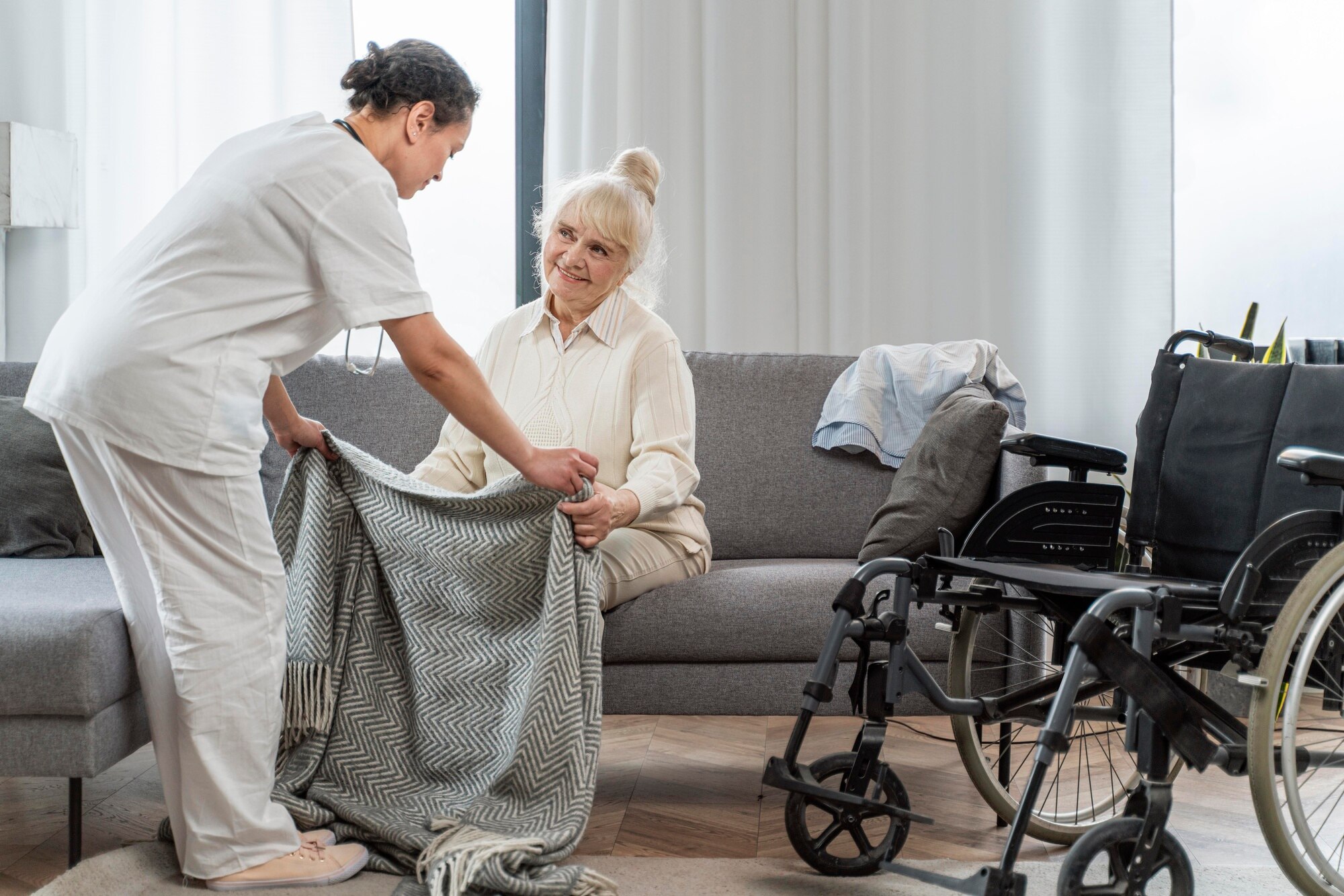The landscape of elder care has transformed dramatically over the past decade. There is a shift towards at home elder care that represents more than just a trend.
Families across America are increasingly choosing to support their aging loved ones in familiar surroundings rather than institutional settings.
It’s a revolution in how we think about aging, family support, and senior care planning.
According to recent research, nearly 77% of adults over 65 express a strong preference to age in place.
This desire, combined with advancements in home care technology, has created the perfect environment for at home care solutions to flourish.
Why At Home Elder Care Is Gaining Popularity
Traditional views of senior care often conjure images of nursing homes and assisted living facilities.
Today, however, taking care of elderly parents at home has become a preferred alternative for many families. This shift stems from several key advantages:
The Emotional Benefits of Familiar Surroundings
Research shows that seniors who remain in their homes experience less stress and confusion than those who relocate to care facilities.
The comfort of familiar surroundings provides emotional stability during a time of physical change.
Advanced Technology Supporting Independence
Modern technology has revolutionized at home elder care. From medication dispensers to medical alert systems, these tools allow seniors to maintain independence while giving families peace of mind.
Equipment for elderly care at home now often connects directly to smartphones for remote monitoring.
Read more: How Future Healthcare Technology is Elevating At Home Care
Personalized Care Plans for Individual Needs
Unlike institutional care with standardized protocols, a care plan for elderly at home can be customized to address specific needs.
Whether someone needs assistance with daily activities or specialized nursing care, home-based solutions offer flexibility that institutional settings cannot match.
Cost-Effectiveness That Makes Sense
When comparing costs, the financial advantages of at home elder care become apparent. The national median cost for a private room in a nursing home is approximately $108,405 per year.
Comprehensive home care services average about $54,912 annually – a potential savings of nearly 50%.
At Home Elder Care Options Available Today
Today’s families have access to various at home care services for elderly that make aging at home increasingly viable:
Personal Care Assistance
Basic activities like bathing, dressing, and meal preparation form the foundation of many elderly care services at home.
These services help seniors maintain dignity while addressing changing physical capabilities.
Medical Support and Monitoring
For those with medical conditions, nursing care at home for elderly provides oversight without hospitalization.
Services may include wound care, medication management, and coordination with physicians. For serious conditions, palliative care for elderly at home offers comfort-focused support.
Specialized Memory and Cognitive Care
Families managing conditions like dementia can access specialized in-home care tailored to cognitive impairments.
Trained caregivers implement strategies to improve safety, reduce confusion, and stimulate cognitive function.
Continuous Care Options
For families needing comprehensive coverage, 24 hour care at home for elderly provides continuous support.
This level of service enables even those with significant needs to remain safely in familiar surroundings.
Finding the Right At Home Elder Care Balance
When exploring options for elderly care at home, finding the right balance between family involvement and professional support is essential:
When to Consider Professional Support
Recognizing when it’s time to bring in help can be challenging. Consider these indicators:
- Difficulties with daily activities like bathing or meal preparation
- Increasing safety concerns, such as medication errors or fall risks
- Caregiver stress or burnout
- Complex medical needs, perhaps requiring eye care at home for elderly
- Social isolation affecting mental well-being
Read more: How to Find The Best Senior Companion Care
Financial Resources for At Home Elder Care
Many families aren’t aware of all the available financial resources. These resources can allow families to build an affordable elder care system that mutually benefits the elder and family members.
Here are some resources:
- Medicare for elderly care at home (typically limited to specific services)
- Long-term care insurance benefits
- Veterans benefits
- State-based assistance programs
Creating a Safe Environment for At Home Elder Care
Simple environmental changes can dramatically improve safety for seniors:
- Bathroom grab bars and shower seats
- Improved lighting in hallways and stairwells
- Removal of fall hazards
- Kitchen adaptations for easier meal preparation
Innovative technological solutions now include personal emergency response systems, medication management devices, and motion sensors that detect unusual patterns.
The Next Step in Your At Home Elder Care Journey
At Kizuna, we believe exceptional care is built on meaningful relationships.
Our professional caregivers become trusted extensions of your family while our personalized care plans evolve as needs change.
Whether you’re seeking live-in care, periodic support, or specialized services, our approach ensures your loved one maintains dignity and independence.
The at home elder care revolution has created unprecedented opportunities for seniors to age with dignity while receiving needed support.
For a consultation about how Kizuna can enhance your loved one’s quality of life while providing your family with peace of mind, contact us today.



